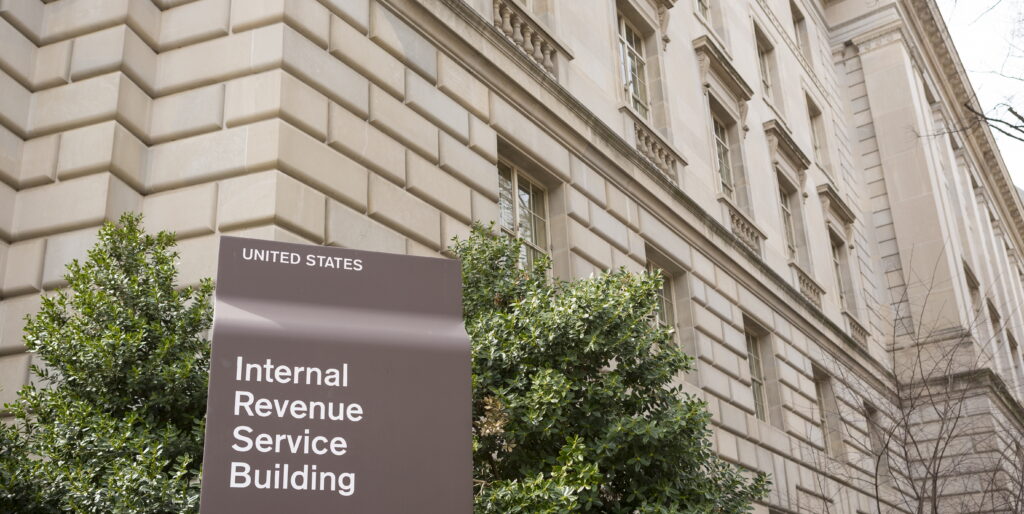
Two recently introduced legislative proposals supported by The Real Estate Roundtable would address issues important to commercial real estate. The Healthy Workplaces Tax Credit Act would provide a new tax credit for business owners’ expenses associated with reducing the risk of COVID-19 in the workplace. The Main Street Tax Certainty Act would permanently extend the 20% pass-through business income deduction enacted in 2017. Separately, a coalition of real estate organizations, including The Roundtable, urged Treasury this week to provide guidance allowing property owners to fully benefit from legislation enacted in December that clarified the cost recovery period for rental housing.
Healthy Workplaces Tax Credit
- On March 2, Sens. Rob Portman (R-OH) and Kyrsten Sinema (D-AZ) introduced the bipartisan Healthy Workplaces Tax Credit Act. (See one-page summary)
- The bill includes several measures that would help businesses reopen safely, while ensuring employee and customer confidence, by providing:
- a refundable tax credit against payroll taxes for 50 percent of the costs incurred by the business for COVID-19 testing, PPE, disinfecting, extra cleaning, reconfiguring workspaces, and employee education and training until the end of the year; and
- an income tax credit for expenditures made to reconfigure work spaces last year (March 13, 2020- December 31, 2020)
- Chip Rogers, president and CEO of the American Hotel & Lodging Association, stated, “The Healthy Workplace Tax Credit is critical legislation for industries like ours, to help offset these significant, but necessary operating costs at a time when hotel revenues remain down 40% or more across the country.” (Sen. Portman news release, March 2, 2021)
- A broad business coalition, including The Real Estate Roundtable, urged Congress last July to pass a “healthy workplaces” tax credit as part of coronavirus relief. (Coalition letter, July 16, 2020 and Roundtable Weekly July 17, 2020). Sen. Portman originally introduced a Healthy Workplaces Tax Credit bill on July 20, 2020.
20% Deduction for Pass-Through Business Income (Section 199A)
- Last week, Members of Congress in both the House and Senate introduced legislation to extend permanently the 20 percent deduction for qualified pass-through business income permanent. The bills are strongly supported by more than 80 stakeholder groups, including The Real Estate Roundtable. (Rep Jason Smith news release, Feb. 26)
- Sen. Steve Daines (R-MT), Rep. Jason Smith (R-MO), and Rep. Henry Cuellar (D-TX) introduced the Main Street Tax Certainty Act to support small businesses, help create jobs and strengthen the economy. Without congressional action, the deduction will expire at the end of 2025.
- In a February 26 letter to the leadership of the Senate Finance and House Ways and Means committees, The Roundtable and other stakeholders stated that making the section 199A deduction permanent would provide certainty to small businesses affected by the COVID-19 pandemic. (Tax Notes, March 1)
Real Estate Industry Requests Rental Housing Cost Recovery Guidance
- On March 2 a coalition of real estate industry organizations requested the Treasury Department and IRS issue guidance that would allow taxpayers to automatically change their method of accounting in order to benefit from the technical correction to the rental housing recovery period that was in the end-of-year omnibus spending bill enacted in December (Roundtable Policy Alert, Dec 22, 2020)
- The 2020 law clarified that properties placed in service before 2018 are eligible for the new 30-year cost recovery period under the Alternative Dispute System (ADS).
- The industry letter was led by the National Multifamily Housing Council and joined by The Real Estate Roundtable, International Council of Shopping Centers, Nareit, and others.
- The letter also requests transition relief that would allow real estate partnerships to file amended returns to opt out of the limitation of business interest deductibility now that the penalty for opting out is a 30-year cost recovery period, rather than the prior 40-year ADS recovery period.
The Roundtable and its Tax Policy Advisory Committee (TPAC) will continue to work with policymakers in Congress and regulatory agencies on the fair and equitable tax treatment of real estate.
# # #






